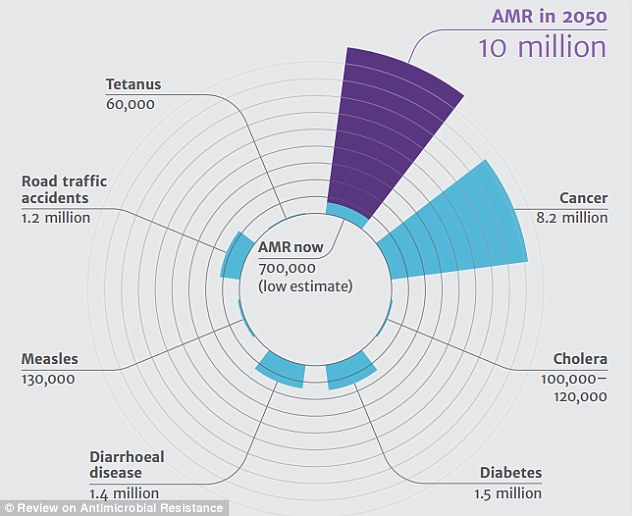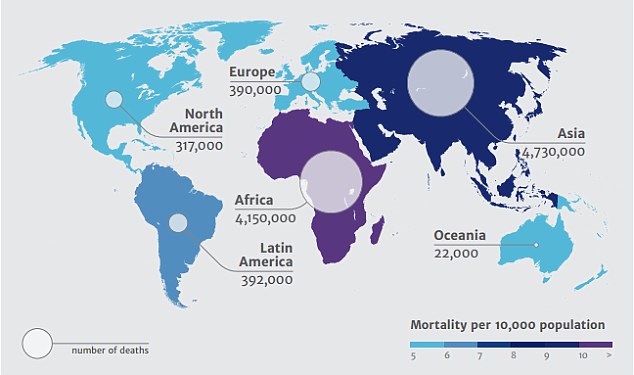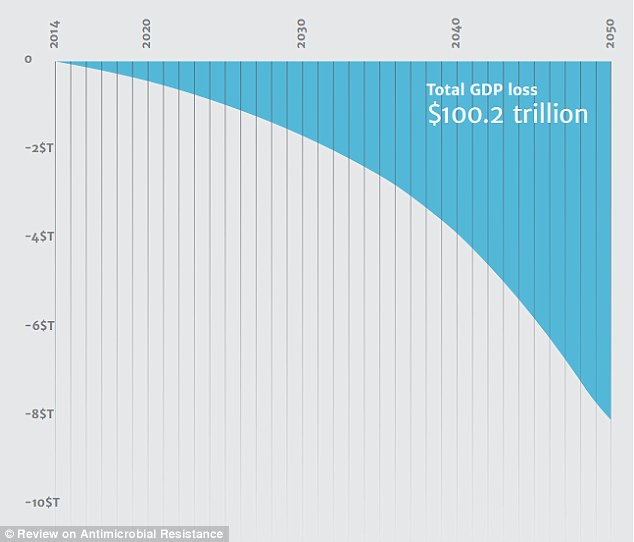Antibiotic Resistant Superbugs may Claim Millions of Lives and $100 Trillion by 2050

There is no question that antibiotics have lent a helping hand in treating various ailments, but now this modern medicine is fueling an issue that was perhaps never considered before. Since their introduction, antibiotics have slowly been fueling the development of superbugs – bacteria that are completely resistant to our conventional treatments. In fact, a recently released report says that superbugs could claim 10 million lives each year as well as $100 trillion by 2050.
Economist and head of the Review on Antimicrobial Resistance, Jim O’Neill says that the trend of growing infections resistant to drugs, which are already killing hundreds of thousands of people across the globe every year, is set to get worse unless we do something now.
O’Neill said:
“Drug-resistant infections already kill hundreds of thousands a year globally, and by 2050 that figure could be more than 10 million. The economic cost will also be significant, with the world economy being hit by up to 100 trillion US dollars (£63.6 trillion) by 2050 if we do not take action.
We cannot allow these projections to materialise for any of us, especially our fellow citizens in the Bric (Brazil, Russia, India and China) and Mint (Mexico, Indonesia, Nigeria and Turkey) world, and our ambition is such that we will search for bold, clear and practical long term solutions.”


The Centers for Disease Control and Prevention had even openly admitted recently that the age of antibiotics is coming to an end as super-bacteria take over. The CDC’s threat report notes that antibiotic prescriptions have led to the death of more than 23,000 Americans every year and the calamitous emergence of super bugs that are impervious to our scientific ‘medicines.’ Even the 23,000 annual deaths is being called conservative.
Coming to the same findings, even more recent research from Harvard scientists reveals that we must find alternatives to antibiotics if we want to stand a chance against these super bacteria.
Professor Dame Sally Davies, chief medical officer for England, said the latest research is ‘compelling.’
“We all know that antimicrobial resistance (AMR) is important. This is a compelling piece of work, which takes us a step forward in understanding the true gravity of the threat. It demonstrates that the world simply cannot afford not to take action to tackle the alarming rise in resistance to antibiotics and other antimicrobial drugs we are witnessing at the moment.
I look forward to the ideas that Jim will recommend in due course for how we can begin to turn this tide globally.”
Here are some bacteria that are already proving to be resistant to conventional medicine:
- Klebsiella pneumonia – a form of bacterial pneumonia associated with klebsiella pneumoniae
- Escherichia coli (E.coli) – which can cause serious food poisoning
- Staphylococcus aureus – a common cause of skin infections, respiratory disease and food poisoning

Professor Anthony Kessel, director for International Public Health at Public Health England, said:
“If ever we needed a reminder of what a public health catastrophe looks like, then this has to be it. Stopping resistance developing should be straight forward: prescribing the right antibiotic for the right infection for the right time and stopping infections spreading by practicing good infection control.
However, in reality this can be difficult to achieve, particularly in countries where antibiotics are freely available or there is lack of sanitation and healthcare is limited. For bacteria, the development of resistance to antibiotics is a natural evolutionary process in terms of survival.”

I have no idea why Western Medicine hasn’t caught on to bioresonance medicine. Pathogens have *very* little chance of becoming resistant to frequencies, especially when the treatment is combined with various (rotating) natural anti-microbials. Actually, I do have an idea why they haven’t embraced the technology. Drug profits would fall…